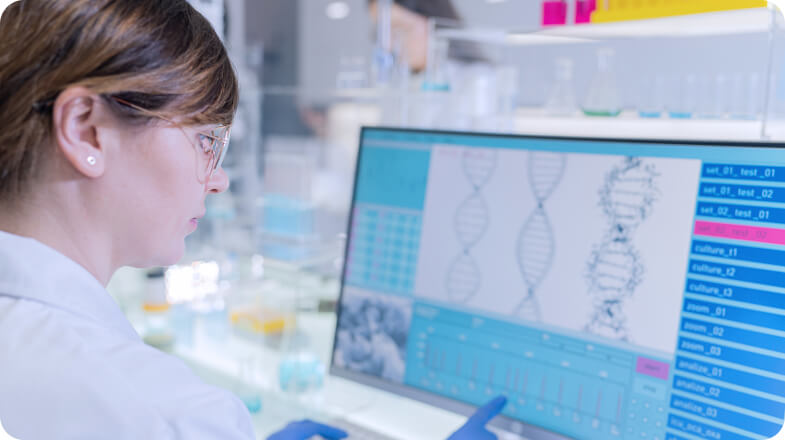Preimplantation Genetic Testing (PGT)
One of the most common questions fertility patients have is how good their chances are of successfully having a child with the help of assisted reproductive technology. Although the success rates for in vitro fertilization (IVF) are relatively high, embarking on the journey can be overwhelming, especially considering the emotional, physical, and financial investment that fertility care incurs.
For some, an advanced fertility procedure known as preimplantation genetic testing (PGT) can help curtail some of the risks and improve the chances of conceiving. Here, we will explain what preimplantation genetic testing is, its role in fertility care, and what you should consider when deciding whether it’s right for you.
What is Preimplantation Genetic Testing (PGT)?
Preimplantation genetic testing (PGT) is a laboratory procedure that is performed on embryos before they are transferred to the uterus. The test aims to evaluate the embryos for various genetic and chromosomal abnormalities.
There are three different types of PGT, each of which is recommended for specific scenarios:
- Preimplantation genetic testing for aneuploidies (PGT-A)
- Preimplantation genetic testing for monogenic disorders (PGT-M)
- Preimplantation genetic testing for structural chromosomal rearrangements (PGT-SR)
Although these tests are done for different scenarios, they are all performed relatively similarly:
- First, the egg and sperm are combined in a petri dish so that fertilization can occur.
- Once one or more eggs have been fertilized, the resulting zygotes are left to begin the earliest stages of embryonic development.
- These primordial embryos develop for about five days until they reach the blastocyst stage, which is when an embryo becomes a ball of rapidly dividing cells. The blastocyst consists of an inner cell mass, which gives rise to the baby, and an outer layer, which later gives rise to the placenta.
- To perform PGT, a small number of cells are biopsied from the outer protective layer, leaving the inner cell mass intact.
- The biopsied cells are then prepared for genetic analysis.

Download Our PGT Guide
Start your journey off right: Ask these four PGT questions at your first appointment with a reproductive endocrinologist.

Preimplantation genetic testing for aneuploidies (PGT-A) is one of the most commonly used forms of PGT. The test determines the health of the embryo by counting the number of chromosomes that it has.
Healthy embryos consist of a total of 46 chromosomes, with 23 coming from their mother, and 23 coming from their father. However, if an embryo has too many or too few chromosomes, it can hinder embryonic development, leading to early pregnancy loss. According to the American College of Obstetricians and Gynecologists, it’s estimated that about 50% of all cases of early pregnancy loss are caused by chromosomal abnormalities. Having an irregular number of chromosomes can also cause a wide range of congenital disorders. Some of the most well-known conditions caused by aneuploidy include Down syndrome, Turner syndrome, and Klinefelter syndrome.
PGT-A is typically recommended for IVF patients who:
- Are over the age of 35
- Have a history of recurrent pregnancy loss (i.e. two or more miscarriages)
- Have a history of failed IVF cycles
- Have a male partner with severe male factor infertility
PGT-A can help identify embryos that have the correct number of chromosomes, thereby reducing the risk of experiencing a miscarriage.
Connect with Prelude About PGT
At The Prelude Network®, our fertility specialists understand firsthand how intense it can be to navigate all of the various procedures that are available and determine whether or not they’re right for your unique needs. Rest assured that when you meet with a doctor in our network, you’re meeting with someone who will take a holistic, compassionate approach toward your specific circumstances.
If you’re ready to take the first step on your path to parenthood, our fertility clinics are ready to help. Connect with The Prelude Network® today.






